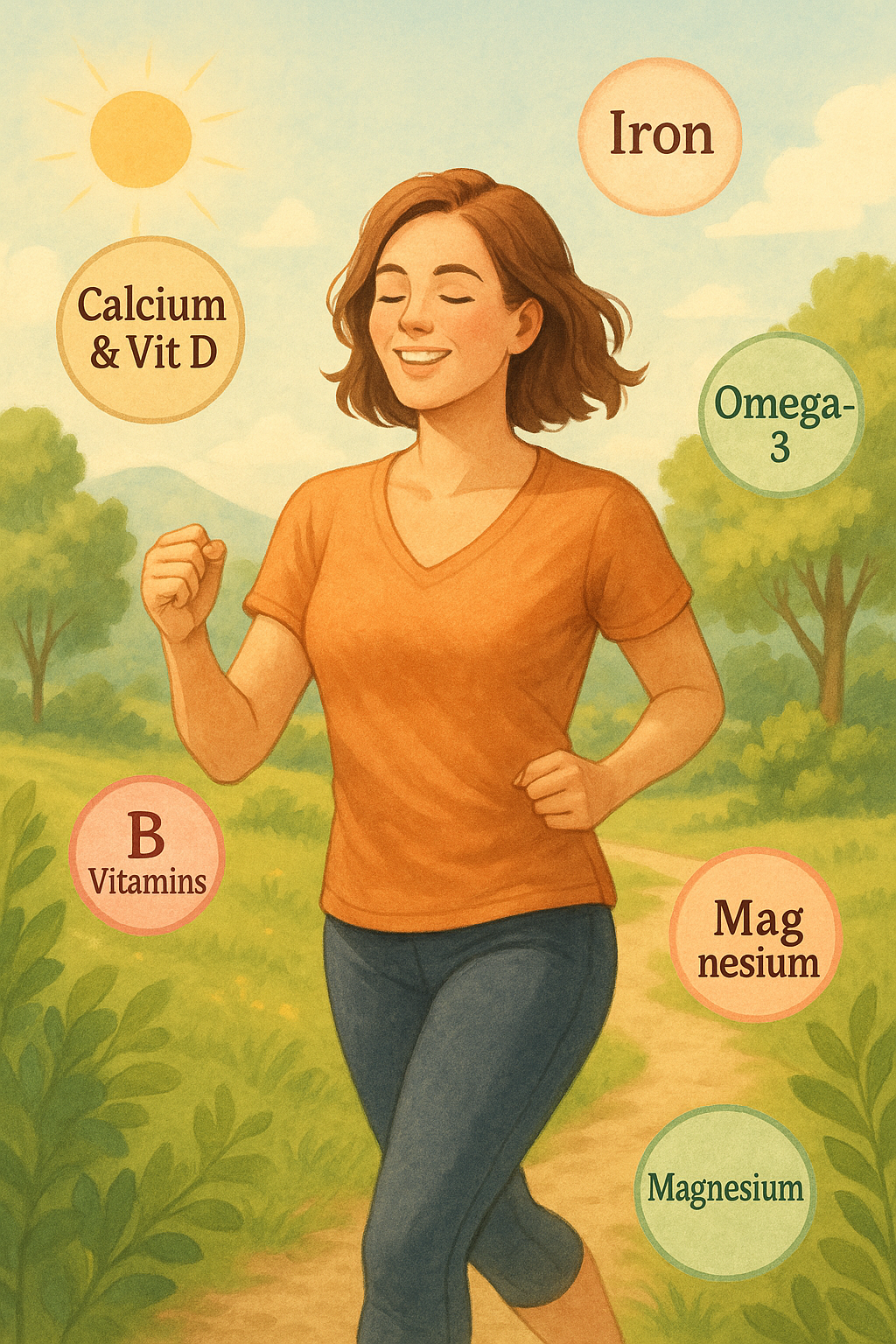
Essential Nutrients for Women Over 30: Fueling Health, Vitality, and Prevention
Share
Turning 30 marks an important transition in a woman’s health journey. While many still feel vibrant and energetic, subtle shifts in metabolism, hormone balance, and nutrient needs begin to emerge. Science shows that paying attention to key nutrients during this decade is crucial for long-term well-being, fertility, and disease prevention.
1. Calcium and Vitamin D: Building Bone Reserves Early
Bone mass peaks in the early 30s, after which gradual loss begins. According to The Journal of Clinical Endocrinology & Metabolism (2015), women in their 30s should prioritize calcium (1,000 mg/day) and vitamin D (600 IU/day) intake to maximize bone density and reduce the risk of osteoporosis later in life (Bauer et al., 2015).
Vitamin D is also essential for hormonal regulation and immune support (Holick, 2017).
2. Iron: Guarding Against Hidden Deficiencies
Iron needs remain high for menstruating women. Iron-deficiency anemia is prevalent in women aged 30-49, especially in those with heavy menstrual cycles, as highlighted in The Lancet Global Health (2018). This can lead to fatigue, reduced work capacity, and mood disturbances (Smith & McCleary, 2018).
Good sources include lean red meat, legumes, and fortified grains, supported by vitamin C for better absorption.
3. Omega-3 Fatty Acids: Heart, Mood, and Hormonal Balance
Omega-3 fatty acids, particularly EPA and DHA, support cardiovascular health, reduce inflammation, and balance hormones. Journal of Women's Health (2020) reported that omega-3 supplementation improved mood regulation and reduced the risk of postpartum depression among women in their 30s and 40s (Jackson et al., 2020).
Fatty fish, chia seeds, and algae oil are great sources.
4. B Vitamins: Energy and Metabolic Support
B vitamins — including B6, B12, and folate — play a vital role in energy production, red blood cell formation, and healthy metabolism. Inadequate intake may lead to fatigue, poor cognitive function, and elevated homocysteine levels, a marker for cardiovascular risk (Nutrients, 2020).
Especially for women planning pregnancy, folate is critical to prevent neural tube defects.
5. Magnesium: The Stress and Sleep Mineral
Magnesium supports muscle relaxation, stress management, and sleep quality, all of which are often compromised in busy women in their 30s. Advances in Nutrition (2021) reviewed that magnesium deficiency can contribute to PMS symptoms, anxiety, and poor sleep (Volpe, 2021).
Leafy greens, nuts, seeds, and dark chocolate are excellent magnesium sources.
Conclusion
For women over 30, adopting a nutrient-rich diet that focuses on calcium, vitamin D, iron, omega-3s, B vitamins, and magnesium is a strategic investment in their present energy and future health. Nutritional awareness in this decade lays the foundation for graceful aging, optimal fertility, and mental wellness.
References
-
Bauer DC, et al. Calcium plus vitamin D supplementation and the risk of fractures. J Clin Endocrinol Metab. 2015;100(2):744-751.
-
Holick MF. Vitamin D deficiency. N Engl J Med. 2017;357(3):266-281.
-
Smith A, McCleary N. Iron deficiency in women of reproductive age. Lancet Glob Health. 2018;6(12):e1251-e1260.
-
Jackson KH, et al. Omega-3 fatty acids and women's mental health: A review of the evidence. J Womens Health. 2020;29(4):566-574.
-
Volpe SL. Magnesium and women's health: A comprehensive review. Adv Nutr. 2021;12(1):105-117.
